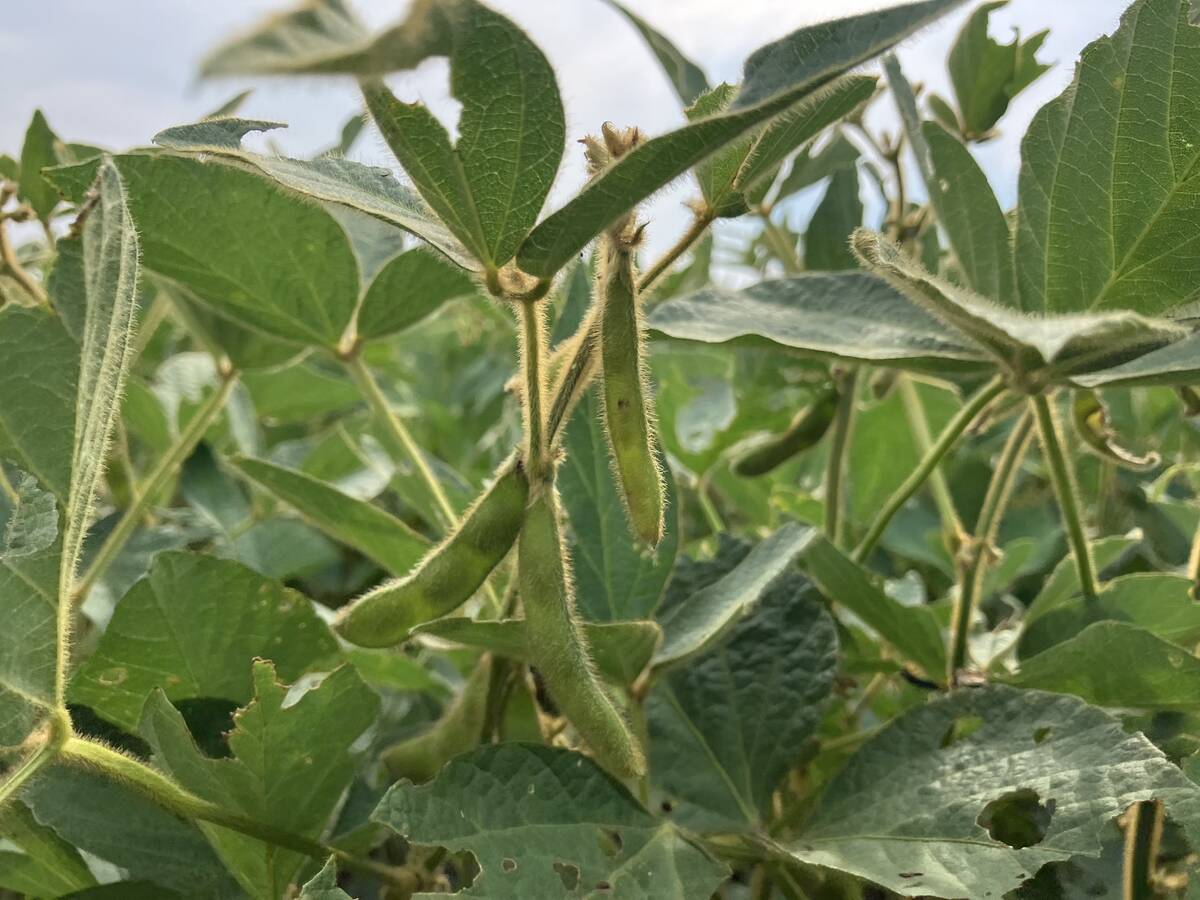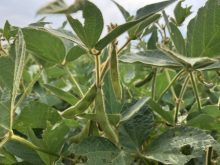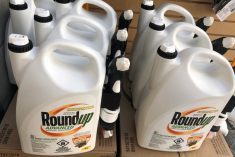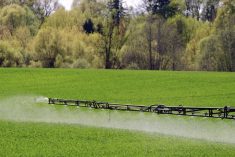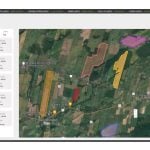Glacier FarmMedia — Canadian soybean growers will have to change how they control weeds if a proposed Health Canada decision becomes a final decision.
In a decision released Wednesday morning, Health Canada’s Pest Management Regulatory Agency removed the registration to spray dicamba on dicamba tolerant soybeans after the crop starts growing.
Bayer sells corn and soybean seed under the Roundup Ready XTend brand, which is tolerant to both dicamba and glyphosate, allowing Canadian farmers to spray the crop and control weeds during the growing season.
Read Also
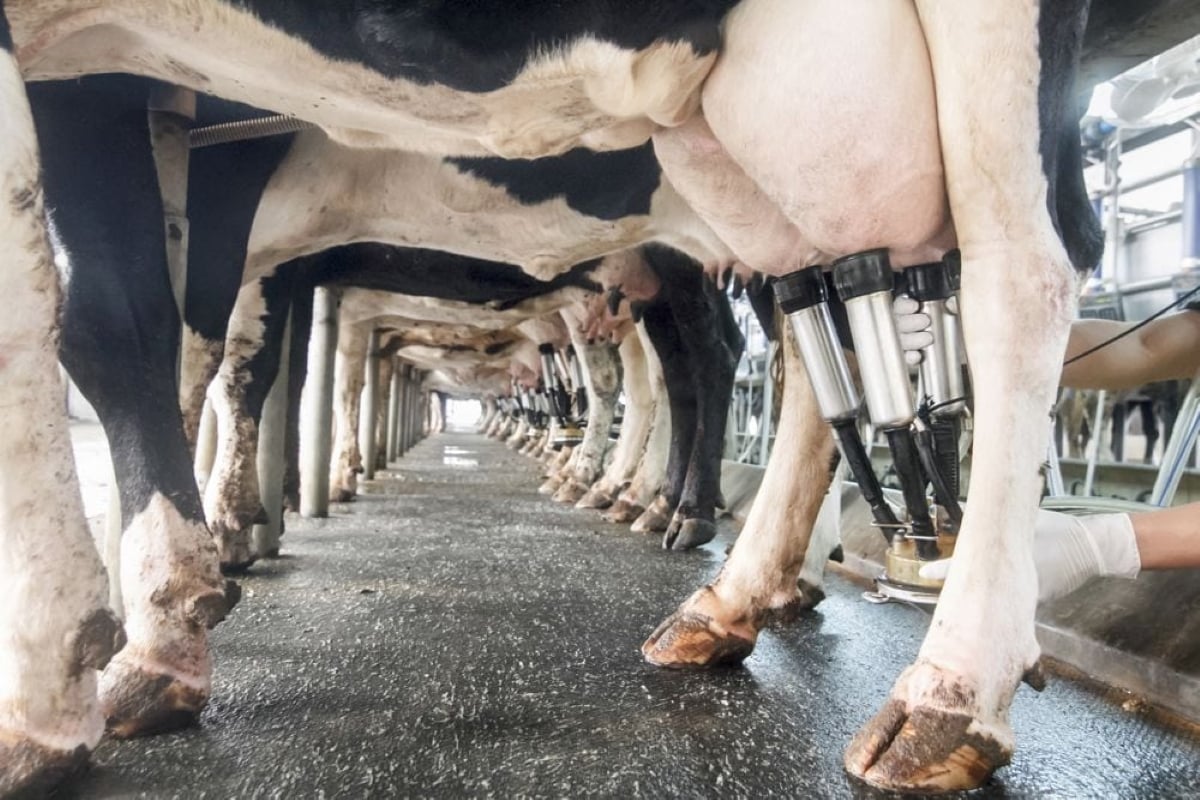
Farm gate milk price to rise in 2026
The Canadian Dairy Commission will raise its farm gate milk price by 2.3255 per cent in February, the Crown corporation announced on Friday.
Bayer assessing PMRA proposal
In an email to the Western Producer, Bayer Crop Science Canada said it is still assessing the PMRA’s proposed special review decision and the potential impact on the agriculture industry.
“Bayer stands behind the safety of our products, including dicamba, which is an important herbicide for Canadian farmers,” Bayer said.
“Dicamba complements glyphosate as a critical crop protection tool by controlling certain glyphosate resistant weeds and providing consistent broadleaf residual weed control. Dicamba is a significant tool for growers and was applied to 9.3 million acres of Canadian crop land in 2024 (Source: Ag Data).”
The PMRA has been conducting a special review on the risks of spray drift and volatilization of dicamba. Using Health Canada language, it was looking at the “potential risk to non-target terrestrial plants from the use of commercial dicamba products.”
Impacts on soy, corn
In its proposed special review decision, posted online Sept. 17, Health Canada said its decision will have the following impacts on soybean and corn growers in Canada:
- Removal of over-the-top applications to dicamba tolerant (DT) soybeans after the crop starts growing (post-emergence). Currently, dicamba products can be applied once before planting or emergence and up to two more times post-emergence.
- Cancellation of its use for DT soybean seed production
New label requirements include:
- Avoid application when temperatures exceed 25 C because warmer temperatures can cause dicamba to volatilize and move off-site.
- Lower the maximum plant height for application on DT field corn crop from 76 centimetres to 50 cm. This will help reduce the chance of pesticide drift to nearby plants and align with the current application height limit for non-DT field corn.
- Update the size of spray buffer zones for crop and non-crop areas, ranging from one to 115 metres for field sprayers and from 45 to 800 metres for aerial application.
Risk of spray drift and volatilization
Health Canada evaluated the risk of spray drift and dicamba volatilization, where the herbicide evaporates from the soil or plant tissue following application.
Agency scientists concluded that “dicamba has the potential to volatilize and move off-site throughout the entire growing season.”
Further, Health Canada studied incidents where dicamba applied to DT crops caused damage to nearby agricultural fields or plants.
From 2015-25, there were 101 reported cases of damage to non-target plants, “89 per cent of which involved just five commercial products with registered uses in DT crops,” Health Canada said.
Some pesticide application experts believe that the risk of volatilization from dicamba is too high and cannot be properly managed. Others say that newer dicamba products are less volatile.
Under the proposed Health Canada decision, soybean growers could still apply dicamba to DT soybeans before seeding or before the crop emerges from the ground.
However, there are no permitted uses in dicamba tolerant soybean seed production.
All uses of dicamba on crops that are not-tolerant of the herbicide, such as cereal crops and lowbush blueberries, are still permitted if the proposed label amendments are implemented.
Health Canada will accept written comments on this proposed decision until Nov. 1.


